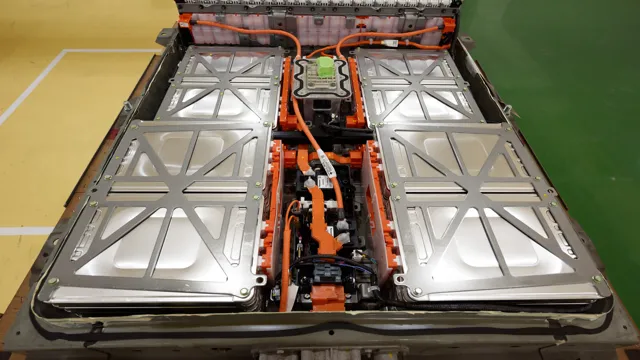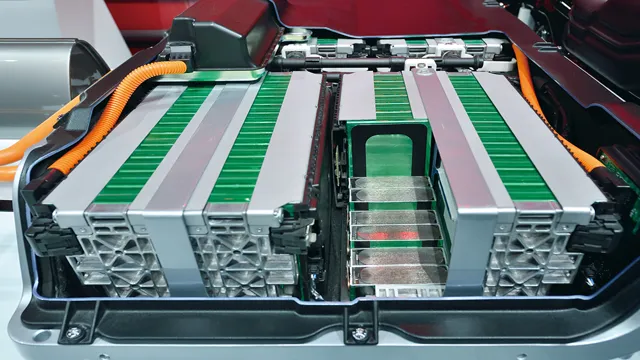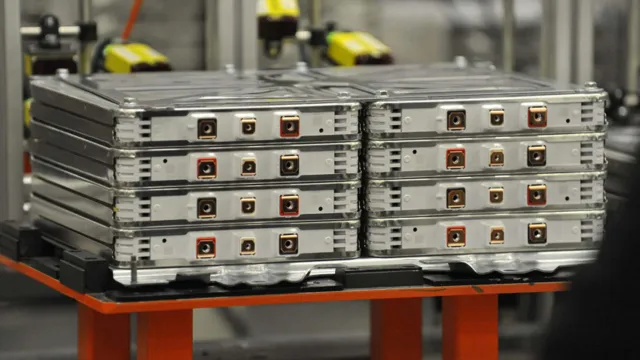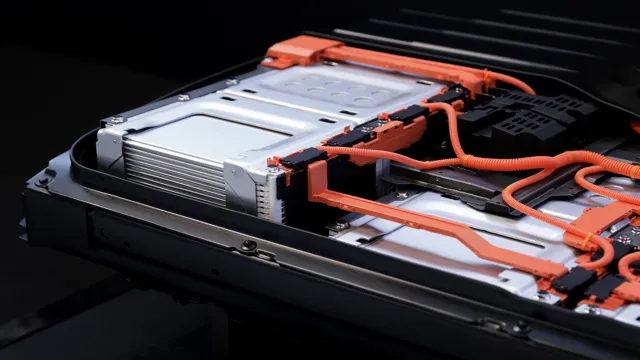Revving Up the Truth: Exploring the Deterioration of Electric Car Batteries
Electric cars have taken the automotive industry by storm, offering a more sustainable and eco-friendly driving experience. While these vehicles boast impressive performance and low maintenance costs, electric car battery deterioration is a growing concern among drivers and potential buyers. The battery pack is the heart of an electric car, providing power to the motor and serving as a determining factor in the vehicle’s range.
Over time, factors such as temperature, usage, and age can cause the battery to lose capacity and performance. But just how fast does electric car battery deterioration occur, and what can be done to prolong its lifespan? Let’s delve into the world of electric car batteries and explore the answers to these pressing questions.
Causes of Battery Deterioration
Electric car batteries are subject to deterioration due to a variety of factors, including usage patterns, temperature, and the passage of time. Frequent rapid charging and discharging can wear down the battery, as can exposure to extreme temperatures. Additionally, simply leaving a fully charged battery sitting unused for extended periods can cause it to gradually lose its capacity over time.
Keeping the battery at an optimal temperature and avoiding repeated rapid charging can help extend its lifespan. As electric car technology continues to evolve, manufacturers are also exploring ways to improve battery design and composition to reduce the impact of these factors and improve overall durability.
Charging habits
One of the most common causes of battery deterioration in electronic devices is improper charging habits. Charging habits like leaving the device plugged in overnight, overcharging, and charging the device to 100% frequently can cause the battery to lose its capacity and degrade faster. In addition, exposing the device to extreme temperatures during charging can also negatively impact the battery’s health.
To prolong your battery’s lifespan, it’s essential to adopt good charging habits such as unplugging the device once it is fully charged, avoiding overcharging, and keeping the battery at a moderate percentage between 20-80%. It’s also good practice to invest in high-quality chargers and avoid using third-party chargers that can potentially damage the battery. By following these simple charging habits, you can drastically increase your battery’s lifespan and ensure optimal performance for your electronic device.

Environmental factors
One of the primary reasons for battery deterioration is environmental factors. Batteries are affected by temperature changes, humidity, and exposure to light. Extreme temperatures, whether hot or cold, can cause the battery to degrade faster.
The electrolyte fluid inside the battery can evaporate if the battery is exposed to extreme heat. Similarly, if the battery is exposed to cold temperatures, it can cause the battery to become less efficient and cause it to lose its charge more quickly. Humidity also plays a role in battery deterioration.
Moisture can seep into the battery and cause corrosion, which can damage the internal components of the battery. Exposure to light, specifically UV light, can also cause damage to the battery’s internal components, leading to deterioration. To prevent battery deterioration due to these environmental factors, it’s essential to store and use batteries in appropriate conditions, avoiding extreme temperatures, high humidity, and exposure to light to ensure they have a longer lifespan.
Temperature effects
One of the significant causes of battery deterioration is temperature. Higher temperatures have a negative impact on battery health and can significantly shorten battery life. When batteries are exposed to heat, the chemical reactions inside them speed up, causing the battery to lose capacity.
For example, if the temperature of a battery is 104°F (40°C), it can only hold 80% of the charge that it could hold at 77°F (25°C). Additionally, high or low-temperature conditions can damage the internal structure of the battery, further reducing its lifespan. Therefore, it is vital to keep lithium-ion batteries in a moderate temperature range of 20-25°C.
If batteries are exposed to extreme temperatures, it is crucial to let them cool down or warm up before use to prevent any potential damage. In a nutshell, high temperatures can cause irreversible damage to a battery’s performance, so it’s essential to keep batteries at a moderate temperature to increase their lifespan.
Symptoms of Battery Deterioration
As electric cars become more popular, it’s important to keep an eye on the health of your vehicle’s battery. Like any battery, electric car batteries can deteriorate over time, which can impact performance and range. One of the most common symptoms of battery deterioration is reduced range, as the battery loses its ability to hold a charge.
You may also notice slower acceleration or a decrease in overall power output. In some cases, you may see warning lights appear on your dashboard indicating an issue with the battery. It’s important to have your battery checked regularly to catch any issues early and prevent more significant problems down the line.
By staying on top of your battery’s health, you can ensure that your electric car performs at its best for years to come.
Reduced driving range
Reduced driving range is a common symptom of battery deterioration in electric vehicles. As the battery ages, its capacity to hold a charge decreases, resulting in reduced driving distance. This is a frustrating issue for electric vehicle owners who rely on their car for daily commutes and errands.
It can be especially problematic during long trips, where the reduced range may require multiple charging stops. It’s essential to keep an eye on your battery’s health and schedule routine maintenance to ensure optimal performance. Regular charging and avoiding extreme temperatures can also help prolong the life of your battery.
Don’t let reduced driving range discourage you from switching to an electric vehicle. With proper care and maintenance, your battery can provide reliable performance for years to come.
Slow charging
Have you noticed that your phone is taking longer to charge than usual? This could be a sign of a deteriorating battery. Over time, lithium-ion batteries can lose their ability to hold a charge due to a number of factors such as heat exposure, age, and usage patterns. Slow charging is one of the most common symptoms of battery deterioration, but there are other signs to look out for as well.
If your battery drains quickly, your phone shuts off unexpectedly, or the battery percentage jumps around erratically, these are all potential indicators that your battery may need to be replaced. It’s important to address battery issues early on, as a completely dead battery can be difficult and expensive to replace.
Battery warning lights
If you’re driving and you notice battery warning lights flickering on your dashboard, it’s time to pay attention to your car’s battery health. These warning lights could signal a weakened battery, and if ignored, could result in a dead battery and a stranded vehicle. A weak battery can also cause problems with other electrical components, such as the alternator and starter.
Symptoms of battery deterioration can include dimming headlights, slow engine crank, and a clicking noise when turning the key. It’s essential to address these symptoms promptly by having your battery checked by a professional mechanic or replacing it if necessary. By regularly maintaining your car’s battery, you can prevent costly repairs and ensure your vehicle’s reliability.
Remember, a healthy battery is the foundation of a well-functioning car.
Preventive Measures for Battery Deterioration
As an electric car owner, you want your battery to last as long as possible. Thankfully, there are plenty of preventive measures you can take to combat battery deterioration. First, avoid letting the battery get too hot or too cold.
Extreme temperatures can cause irreversible damage, so make sure to park your car in a garage or shaded area on hot days, and use a battery heater in cold weather. Another important tip is to avoid rapid charging as much as possible. While it may be convenient, rapid charging can cause the battery to degrade at a faster rate.
Instead, opt for regular charging whenever possible. It’s also important to keep your battery well-maintained by regularly checking its charge level, keeping it clean, and addressing any issues promptly. While electric car battery deterioration is inevitable to some degree, these steps can help extend the life of your battery and keep your car running smoothly.
Proper charging practices
When it comes to maintaining your device’s battery health, proper charging practices are essential. One of the most important preventive measures is to avoid overcharging, which can lead to a deterioration in the battery’s lifespan. It’s also important to avoid letting your battery run down to 0% since this can also cause damage.
Another useful tip is to use the original charger that came with your device since off-brand chargers may provide an incorrect voltage that can further damage your battery. It’s also advisable to remove any phone cases while charging your device since they can trap heat, which can negatively impact your battery. By following these simple tips, you can help prolong your battery’s life and keep it functioning optimally for longer.
Storage guidelines
When it comes to storing batteries, there are a few things you can do to prevent deterioration and extend their lifespan. First, it’s important to store batteries in a cool, dry place. Exposure to heat and moisture can speed up the deterioration process and cause batteries to lose their charge more quickly.
Next, make sure to remove batteries from devices that won’t be used for an extended period of time. This can help prevent leakage and potential damage to both the battery and device. Finally, it’s a good idea to use the oldest batteries first and avoid mixing old and new batteries in a device.
This can help ensure that all batteries are being used and not sitting around too long, which can also contribute to deterioration. By following these simple guidelines, you can help prolong the life of your batteries and avoid unnecessary waste.
Conclusion
In the world of electric vehicles, battery deterioration is as inevitable as death and taxes. But fear not, for just as one can extend their lifespan through a healthy lifestyle, there are ways to slow down the degradation of electric car batteries. So instead of cursing the passing of time, let’s embrace it and work together to find new and innovative ways to ensure the longevity of our electric companions.
“
FAQs
What causes electric car battery deterioration?
Electric car battery deterioration can occur due to several reasons such as high temperatures, frequent charging and discharging, and age.
How long does an electric car battery last before it deteriorates?
The lifespan of an electric car battery can vary depending on the type of battery and usage. Generally, it can last anywhere from 5 to 10 years before it starts to deteriorate.
Can electric car battery deterioration be prevented?
While the deterioration of the electric car battery is inevitable, certain measures can slow down the process. The car can be parked in shaded areas, limit the frequency of fast charging, and avoid fully discharging the battery.
How can I tell if my electric car battery is deteriorating?
There are certain signs to look out for, such as a decrease in driving range, slower charging times, and reduced performance. If you notice any of these, it might be an indicator of battery deterioration.

![Powering the Future: How [Battery Company Name] Propels Electric Cars to New Heights](https://electriccarwiki.com/wp-content/uploads/2023/12/battery-company-electric-car.webp)




